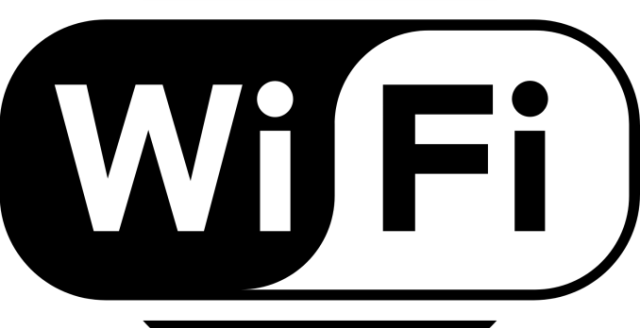Telecom
Econet Launches Pan-African Wi-Fi Marketplace

Econet, through its subsidiaries Liquid Telecom Group (LTG) and Cassava Fintech International (CFI) has launched a network of #SasaiWiFiFinder hotspots in Kenya, Uganda, Zambia and Rwanda, to provide locals with affordable internet access.

According to a statement released by the telecommunications services provider this partnership unlocks the ‘African missing network’ that will accelerate sustainable economic development through digital inclusion for all Africans.
The partnership creates a Wi-Fi marketplace that helps ISPs, franchisees and digital service providers unlock new revenue streams by creating job opportunities.
Nic Rudnick, Group Chief Executive Officer at LTG, said: “We firmly believe that every African has the right to high-speed connectivity, and with #SasaiWiFiFinder hot spots, we are making this vision a reality. This initiative is in line with our parent company Econet’s vision of an inclusive, connected future that leaves no African behind.
“The connectivity network that we have created with these hotspots will ensure ubiquitous access for businesses and consumers at extremely affordable rates. This is yet another milestone achieved in building Africa’s digital future one individual and business at a time.”
Darlington Mandivenga, the Chief Executive Officer of the CFI Group, added: “We consider #SasaiWifiFinder to be a vital piece in the social and financial digital inclusion agenda that we are passionately driving across Africa.
“It is part of our broader strategy to provide solutions that address everyday problems for everyday people. In this case, we are offering more affordable internet access to African communities, including those previously excluded.”
The companies explain that users will get access to free internet bundles when they connect to #Sasaiwififinder hotspots and download the Sasai Super app and purchase internet bundles.
The app is a multi-service technology platform that allows access to social media services, on-demand services, digital interactive media services and digital marketplace, including payment methods in a single, easy-to-use mobile application.
Following the successful launch of #SasaiWiFiFinder hotspots in Zimbabwe, the service will soon be available in South Africa, South Sudan, DRC, Botswana, Burundi, Lesotho and Tanzania.
According to the GSMA’s annual Mobile Economy Sub-Saharan Africa report, the Sub-Saharan Africa region remains the fastest-growing region in terms of mobile subscription, with 477 million mobile subscribers at the end of 2019, with an additional 137 million subscribers over the period to 2025, representing a CAGR of 4.3%.
Telecom
NCC Issues 90 Days Deadline to Telcos to Resolve Subscribers’ Unclaimed Airtime

Nigerian Communications Commission (NCC) has issued a 90-day compliance window to telecommunications operators to resolve the long-standing issue of unutilised and unclaimed subscribers’ recharges.

This announcement was made at a high-level virtual stakeholders’ engagement forum held on Tuesday, targeted at refining and enforcing new guidelines that protect consumer rights in Nigeria’s evolving telecom landscape.
Dr. Aminu Maida, executive vice chairman, NCC, whose speech was delivered at the forum by Rimini Makama, executive commissioner, Stakeholder Management, emphasised that the Commission was taking proactive steps to address unused prepaid credit on inactive lines, an issue that impacts millions of subscribers nationwide.
“With the rapid growth of mobile subscriptions and the dominance of prepaid plans, it has become critical to ensure that consumer interests are not eroded through forfeiture of unused credit,” the NCC Boss said.
He stressed the commitment of the Commission to creating a regulatory framework that is fair, enforceable, and aligned with international best practices.
The current Quality of Service Business Rules provide that prepaid lines with no revenue-generating activity for six months be deactivated, and may be recycled after another six months.
The proposed guidance reaffirms the right of subscribers to reclaim their unused credit within 12 months, provided they can verify ownership.
In her remarks, Mrs. Chizua Whyte, head of Legal and Regulatory Services, NCC, presented the Draft Guidance on Unutilised and Unclaimed Recharges, which outlines clear procedures for managing inactive subscriber accounts.
She stated that operators will be required to carry out comprehensive audits of all churned numbers, ensure unused airtime is offered back to subscribers through service alternatives, and strictly avoid monetising forfeited recharges.
Whyte explained that these guidelines are not only aimed at protecting consumers, but also offering regulatory clarity to operators.
She added that the Commission is mandating full compliance within 90 days of the issuance of the final guidance, with non-compliance attracting penalties, including regulatory audits.
The forum attracted wide participation from across the industry, with discussions centred on striking a balance between protecting consumer rights and maintaining operational feasibility.
Participants agreed on the need for greater transparency, stronger consumer education, and consistent notification practices.
The NCC reiterated its commitment to fostering a fair, transparent, and consumer-first regulatory environment.
The 90-day deadline signals a new era of accountability in how telecom operators manage subscriber credits and reinforces the Commission’s role as a guardian of consumer trust in the digital age.
Telecom
Moniepoint DreamDevs Bootcamp Supports Nigeria’s Digital Economy Agenda

Moniepoint Inc, Africa’s leading digital financial services provider, has taken a significant step in shaping the future of African tech talent with its DreamDevs initiative.

Designed to nurture the brightest minds on the continent, this transformative program aims to equip recent graduates with practical tech skills and invaluable real-world experience, addressing the persistent challenges in tech talent sourcing across Africa.
Targeting graduates from technology, computer science, engineering, and related fields with foundational programming knowledge in HTML, CSS, and JavaScript, DreamDevs offers a rigorous nine-week boot camp that immerses participants via hands-on training from leading software engineers and experience building impactful products for millions of people.
The DreamDevs initiative comes at a pivotal moment for Nigeria’s digital economy, which has seen remarkable growth over the past two decades. The Information and Communications Technology (ICT) sector contributed 18% to Nigeria’s GDP in 2024, underscoring its importance as a backbone for economic diversification. However, the global tech workforce faces a significant challenge, with 4.5 million unfilled tech jobs worldwide—a gap that is expected to widen as demand for skilled workers outpaces supply. Initiatives like DreamDevs aim to address this shortage by nurturing local talent capable of competing on both domestic and global stages.
The program officially launched following a competitive hackathon that identified 20 exceptional young talents who earned their place in the boot camp. Over the course of nine weeks, these participants will undergo intensive training in topics such as Java Refresher, Google Cloud Platform, Kafka Fundamentals, Google Cloud ML/AI, and Advanced Java, ensuring they develop the technical proficiency required to thrive in today’s digital economy.
At the end of the boot camp, standout participants will earn internship opportunities, opening doors to further professional development, while all participants have the potential to secure full-time positions with Moniepoint.
Felix Ike, Co-Founder and Chief Technology Officer of Moniepoint Inc, emphasized the company’s commitment to Africa’s future, stating that investing in young talent is crucial for driving technological advancement across the continent.
He highlighted that DreamDevs goes beyond just training; it is a strategic effort to create a pathway for ambitious graduates to become key players in Africa’s evolving tech landscape.
“We have always envisioned a transformative approach to technology, using it to power the dreams of millions and engineering financial happiness across the land,” Ike said.
“By providing practical experience, upskilling opportunities, startup incubation, and product development support, DreamDevs equips participants to become invaluable assets to the tech industry while contributing to the government’s vision for a thriving digital economy in Nigeria.”
Moniepoint’s program complements existing government efforts such as the 3 Million Technical Talent (3MTT) initiative under President Bola Tinubu’s “Renewed Hope” agenda, which aims to create two million digital jobs by 2025 and position Nigeria as a net exporter of tech talent.
Together, these programs are building Nigeria’s technical talent backbone—a foundational pillar in the Ministry of Communications, Innovation & Digital Economy’s strategic blueprint.
With a track record of investing in tech talent across Africa, with previous initiatives such as Moniepoint HatchDev, a specialized nine-month training program in partnership with NITHub Unilag, and its hugely popular Women in Tech initiative, Moniepoint has consistently demonstrated its commitment and dedication to leveraging digital technology for growth across all sectors while prioritizing infrastructure development and positioning itself as a driving force in the continent’s technological evolution.
Telecom
Sophos Names Chris Bell as Senior VP Global Channel to Lead Next Evolution of Global Channel Strategy

Sophos, a global leader of innovative security solutions for defeating cyberattacks, today announced it has named Chris Bell as senior vice president of global channel, alliances and corporate development, where he will lead the evolution of Sophos’ global channel strategy.

This key appointment reinforces Sophos’ channel-first commitment to deliver a world-class partner experience.
Bell joined Sophos following its acquisition of Secureworks, where he served as chief strategy officer, responsible for long-term vision, strategic partnerships, corporate development and strategy.
Building on his career of more than two decades working in the technology industry, including nearly a decade in cybersecurity and channel; Bell’s leadership will focus on developing and executing a channel strategy that prioritizes expanding reach, empowering partners and driving growth.
Key priorities for Bell at Sophos will include:
• Enhancing Sophos Partner Experience to make it seamless for partners to do business with Sophos at high velocity, while streamlining operations.
• Continued Innovation for Managed Service Providers (MSPs) and Managed Security Service Providers (MSSPs) with Sophos’ industry-leading cybersecurity platform, enabling superior cybersecurity outcomes for customers, enhancing operational efficiency for security analysts, and boosting profitability for partners.
• Fueling Partner Growth with service delivery competencies, expanded partner enablement programs including persona-based training and fast-track training to expand partners cybersecurity expertise.
• Increasing Sophos’ Market Reach by leveraging the unified portfolio of Sophos and Secureworks to deliver best-in-class security technologies and services, empowering partners to enhance cybersecurity and strengthen the security posture of organizations, from commercial to enterprise.
• Expanding Routes to Market by bolstering Sophos’ presence across technology alliances, marketplaces and the cyber insurance ecosystem. Sophos will also continue to maintain its focus across resellers, service providers, and OEM channels.
“Partners need adaptable strategies that prioritize flexibility to stay ahead of the increasingly complex threat landscape,” said Bell.
“Unifying Sophos’ and Secureworks’ portfolios presents a unique opportunity to accelerate a future-ready channel program that arms partners with the technology, services, insights, and enablement needed to protect customers and fuel long-term growth.”
A core piece of Sophos’ channel strategy is to better equip partners in addressing the evolving security challenges faced by businesses of all sizes. By aligning more closely with partner needs and prioritizing an open ecosystem, Sophos aims to create a stronger partner network that supports customers from strategy to technology and deployment.
“Evolving our channel business to consistently deliver excellent customer outcomes is at the core of our partner go-to-market approach,” said Torjus Gylstorff, chief revenue officer at Sophos.
“We are thrilled to have Chris’ strategic vision and deep channel and cybersecurity expertise to shape Sophos’ channel strategy and build programs to empower partners to scale their security business.”
Sophos consistently expands its service delivery capabilities and is recognized for its leadership in implementing partner feedback into its products and enablement offerings. Following the acquisition of Secureworks, Sophos is the leading pure-play cybersecurity vendor of managed detection and response services, protecting more than 28,000 global customers.
Sophos also strives to streamline partner operations through initiatives like Sophos Partner Care, a 24×7 team dedicated to providing quoting, licensing and general partner account support, and Sophos Customer Success, a single point of contact for maximizing customer onboarding, retention and growth throughout the post-sales experience.
Sophos Channel Recognition
Sophos has been recognized as a Champion in the Canalys Global Cybersecurity Leadership Matrix 2025, underscoring its excellence in channel management and market performance. Additionally, Sophos received a 5-Star Award in the 2025 CRN Partner Program Guide and has been a recipient of the 5-Star Award for the past 12 years. The CRN Partner Program Guide is a key resource that helps solution providers identify vendor programs aligned with their business goals and committed to delivering high partner value.
To learn more about the Sophos Partner Program, visit: www.sophos.com/partners.

 News3 days ago
News3 days agoAOT Issues Bench Warrant against Sanusi, Aero Contractors MD

 News3 days ago
News3 days agoUS Cancels Visas for All South Sudanese Passport Holders

 News3 days ago
News3 days agoMeningitis Outbreak Kills 151 in Nigeria – NCDC

 News3 days ago
News3 days agoAfrimash Launches USSD Code to Revolutionize Poultry Farming and Combat Counterfeit Farm Produce

 News3 days ago
News3 days agoSERAP Calls on Tinubu to Reject $1.08Bn Loan, Probe Missing Funds

 News2 days ago
News2 days agoHow KongaFM 103.7 Helped Cure My Insomnia Challenge

 Broadcasting2 days ago
Broadcasting2 days agoMTN Battles Netflix, Showmax with New Streaming Platform

 News2 days ago
News2 days agoFG to Invest in Cutting-edge Broadcast Technology



























